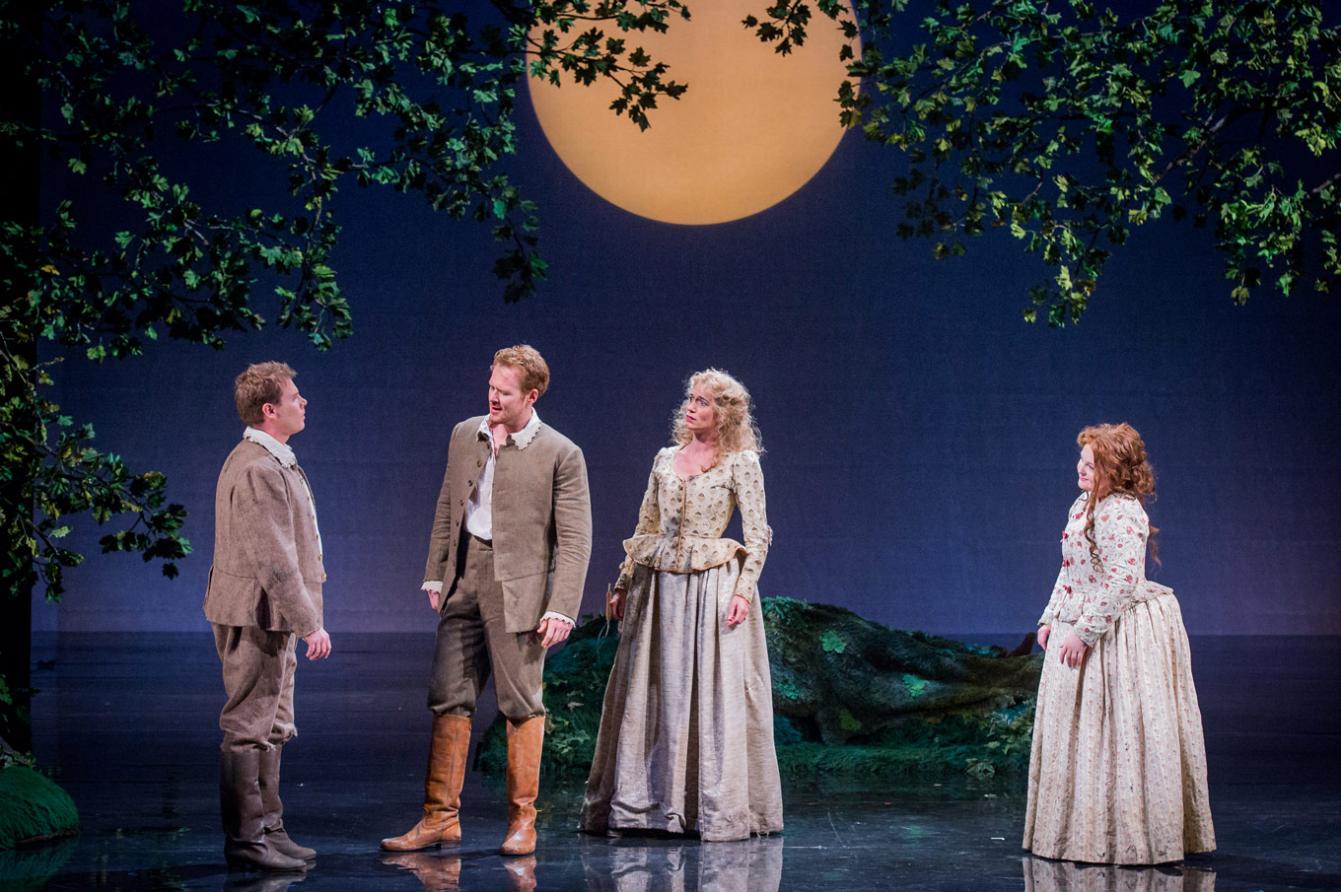How Does Shakespeare Use the Characters of Oberon and Titania to Explore the Themes of Love, Power, and Jealousy?
In William Shakespeare's enchanting play, A Midsummer Night's Dream, the characters of Oberon and Titania, the king and queen of the fairies, play pivotal roles in exploring the universal themes of love, power, and jealousy. Through their interactions and conflicts, Shakespeare delves into the complexities of human relationships and emotions, offering insights into the nature of love, the dynamics of power, and the destructive force of jealousy.

I. Oberon And Titania: The Fairy King And Queen
Oberon and Titania are the rulers of the fairy world, possessing magical powers that influence the lives of mortals. Their relationship is characterized by both love and conflict, reflecting the duality of human emotions. They deeply care for each other, yet their disagreements often lead to turmoil in the fairy realm.
- Their Love: Oberon and Titania's love for each other is evident in their passionate exchanges and tender moments. Despite their occasional quarrels, they ultimately find reconciliation, demonstrating the enduring power of love.
- Their Disagreements: The conflict between Oberon and Titania stems from their differing perspectives and desires. Titania's refusal to give up her changeling child to Oberon sparks a bitter dispute, highlighting the challenges of power dynamics within relationships.
II. Oberon's Use Of Love And Jealousy
Oberon's actions throughout the play reveal his manipulation of love and jealousy to achieve his goals. He uses his magical powers to manipulate the emotions of the mortal characters, causing confusion and chaos.
- Love as a Tool: Oberon uses love as a tool to manipulate the characters, particularly Demetrius and Helena. By causing Demetrius to fall in love with Helena, Oberon sets in motion a series of events that ultimately lead to the resolution of the play's conflicts.
- Jealousy and Conflict: Oberon's actions also lead to jealousy and conflict among the characters. His manipulation of Demetrius's affections causes Helena to experience heartbreak and despair, highlighting the devastating effects of jealousy.
III. Titania's Experience Of Love And Jealousy

Titania's experiences in the play shed light on the theme of jealousy and its corrosive effects on relationships. Her initial infatuation with Bottom, the weaver, and her subsequent jealousy of Oberon's love for Hippolyta reveal the irrational and destructive nature of jealousy.
- Infatuation with Bottom: Titania's sudden infatuation with Bottom, transformed into a donkey by Oberon's magic, highlights the irrational and unpredictable nature of love. Her attraction to Bottom challenges conventional notions of beauty and desire.
- Jealousy of Oberon: Titania's jealousy of Oberon's love for Hippolyta leads her to lash out at him and refuse to give up her changeling child. Her jealousy blinds her to reason and fuels the conflict between them.
IV. The Resolution Of Oberon And Titania's Conflict
The resolution of Oberon and Titania's conflict marks a turning point in the play. Their reconciliation symbolizes the triumph of love over jealousy and discord.
- Oberon's Apology: Oberon's apology to Titania and his willingness to compromise demonstrate his genuine love for her. He acknowledges his mistakes and seeks forgiveness, paving the way for reconciliation.
- Titania's Forgiveness: Titania's forgiveness of Oberon signifies her ability to let go of her jealousy and embrace love. Their reconciliation restores harmony to the fairy realm and sets the stage for the play's happy ending.
V. Conclusion

Through the characters of Oberon and Titania, Shakespeare explores the complex interplay of love, power, and jealousy. Their experiences and interactions provide insights into the human condition, revealing the transformative power of love, the corrosive effects of jealousy, and the importance of forgiveness and reconciliation. A Midsummer Night's Dream continues to resonate with audiences today, offering timeless lessons about the complexities of human relationships and the enduring power of love.
YesNo

Leave a Reply